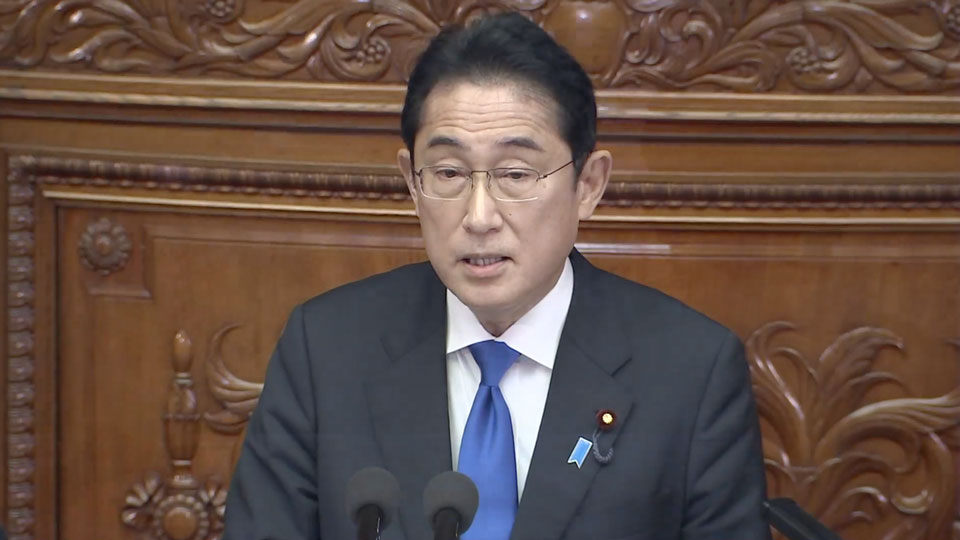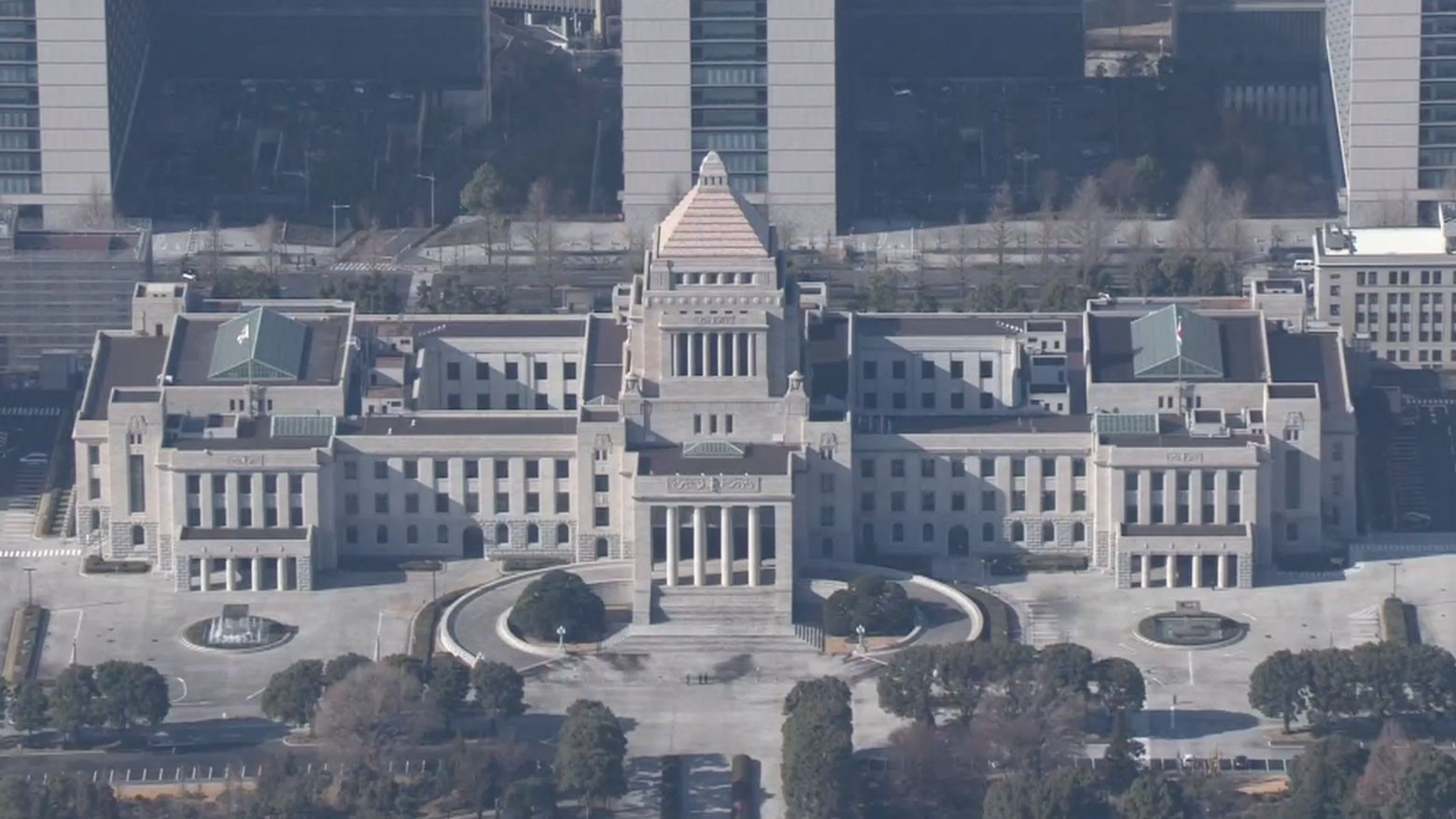"There have been two major turning points in the history of modern Japan," said Kishida Fumio. "The Meiji Restoration and the end of World War Two 77 years later. And now -- 77 years after that -- we are once again at a turning point in history."
Security budget
The second policy speech of Kishida's tenure had a distinct focus on defense spending. He said his administration would allocate more than 300 billion dollars for the purpose over the next five years as part of an effort to boosting the overall defense budget to reach 2 percent of GDP in fiscal 2027. He reiterated his controversial plan to pay for this at least partially through tax hikes.
"The government will make the utmost effort to carry out administrative and fiscal reform, but there will still be a shortfall equivalent to about a quarter of the outlay," he said. "It is our responsibility to deal with this and not pass on the cost to future generations."
Shrinking birthrate
Estimates suggest the number of births in Japan fell below 800,000 last year, a record low. Kishida issued a stark warning about the effects of the demographic decline, saying, "We are on the brink of being unable to maintain social functions."
He said one of his government's priorities would be to find ways to support families and encourage them to have more children.
The global energy crisis is also affecting household finances. Kishida pointed to nuclear power as a solution, saying his government would continue with plans to extend the life of existing plants and push for the construction of new reactors.

Party reactions
Kishida's focus on the declining birthrate drew some praise.
"The Prime Minister has made it clear that top priority will be given to measures to support families with children," said Yamaguchi Natsuo, leader of ruling coalition partner Komeito. "Our party intends to contribute to building a national consensus on that issue."
But there was almost universal opposition to the increase in defense spending, with even some members of Kishida's own Liberal Democratic Party expressing doubts about the tax hike plan.
"What stood out in the speech was that the defense budget will balloon anyway, whether it's funded by tax increases or government bonds," said Izumi Kenta, president of the opposition Constitutional Democratic Party. "We should be doubling the budget on child-related policies first -- before increasing the defense budget."
What's next
During last autumn's extraordinary Diet session, four Cabinet ministers resigned over issues related to the former Unification Church and political funding scandals. The issue drove the Cabinet's approval rating down and Kishida has yet to find a way to turn the momentum. Opposition parties are expected to once again highlight the government's connections with the Unification Church when they question the administration on policy issues during the current session.
Kishida's low approval rating and party dissension on the defense tax hike has led some to mention the possibility of the Lower House being dissolved later this year. The prospect of elections will loom over the debate this Diet session, which lasts until June. For his part, Kishida will be counting on a smooth passage of his draft budget and his appearances at high-profile international events such as the G7 summit in May to help turn his fortunes.



